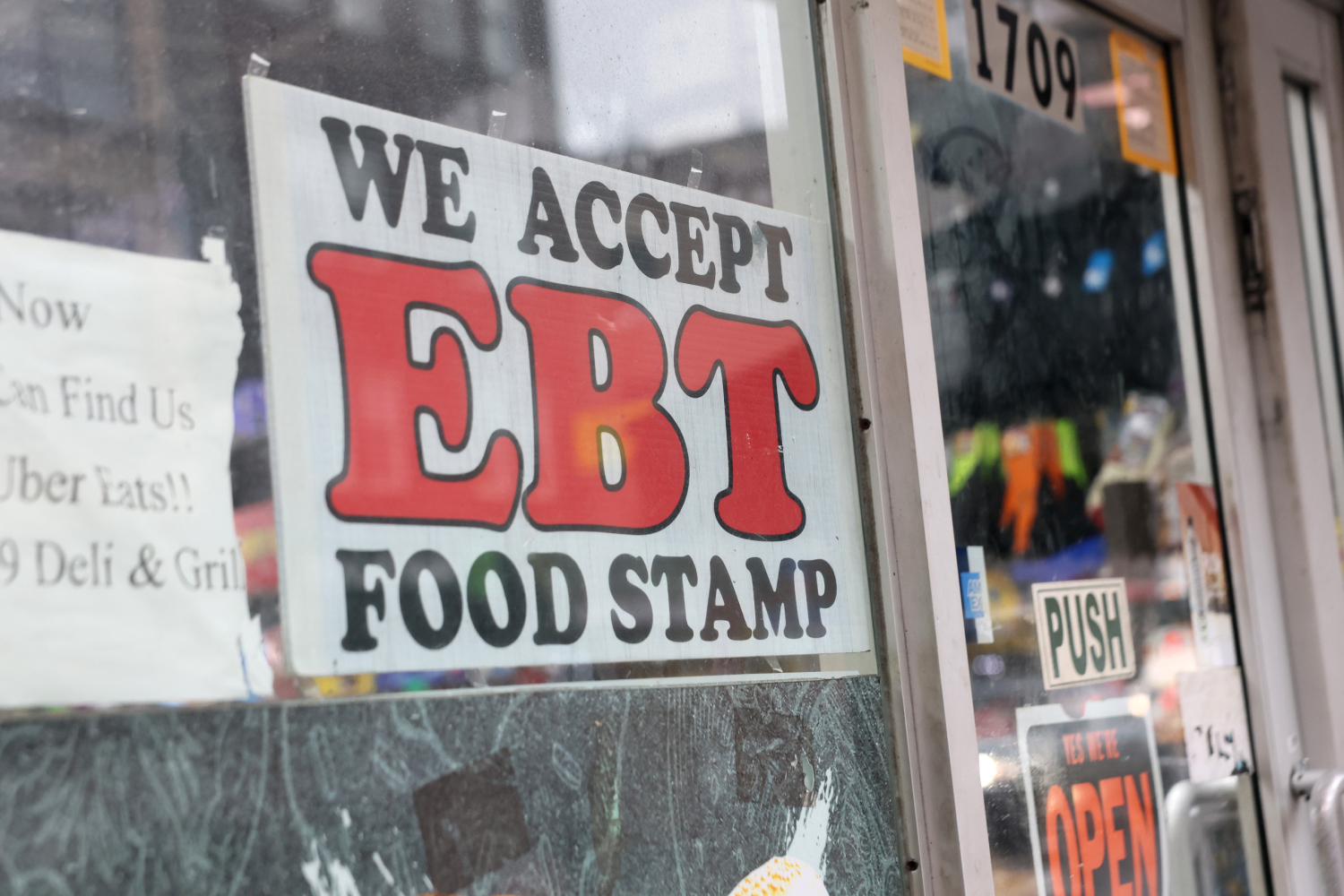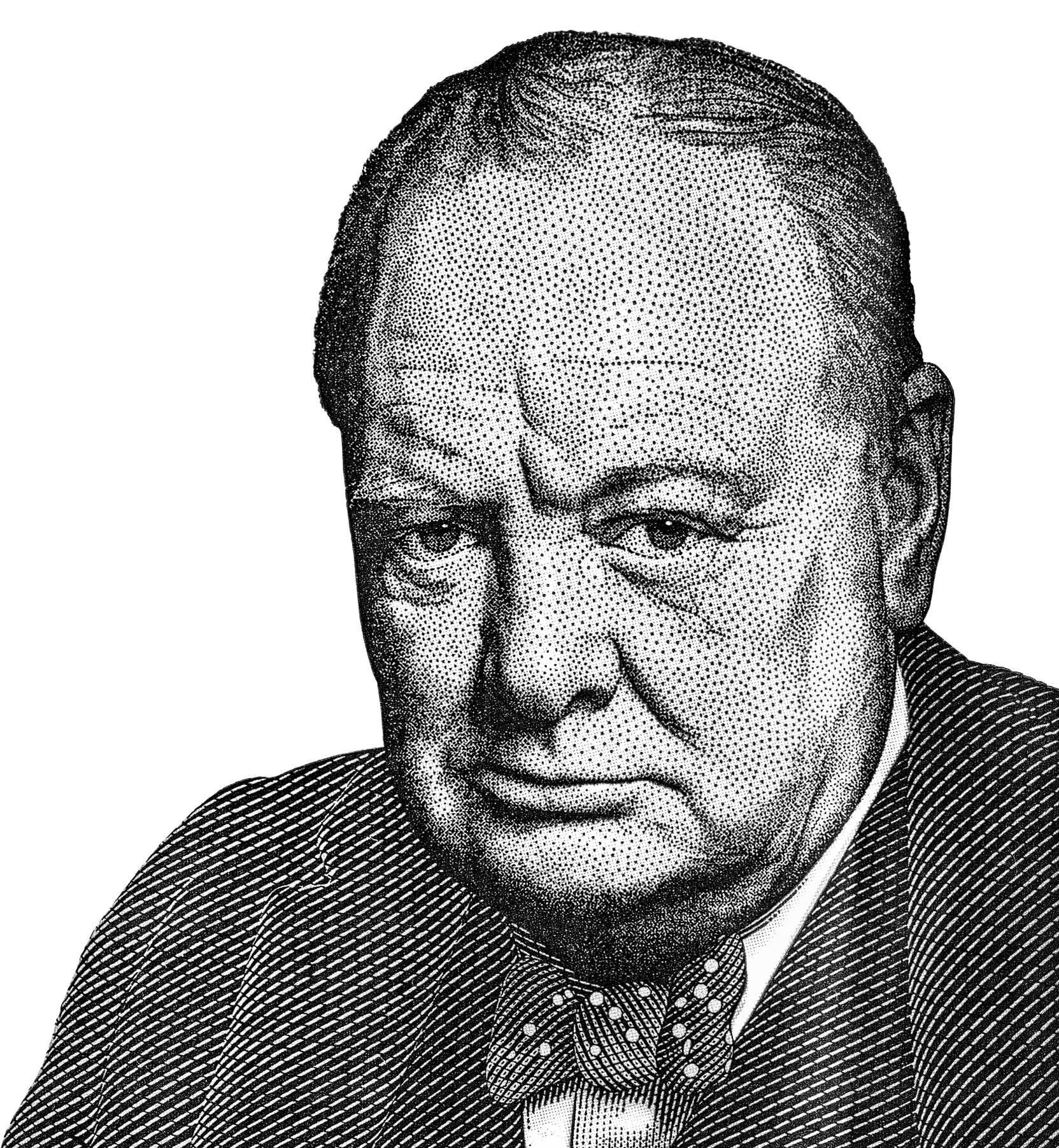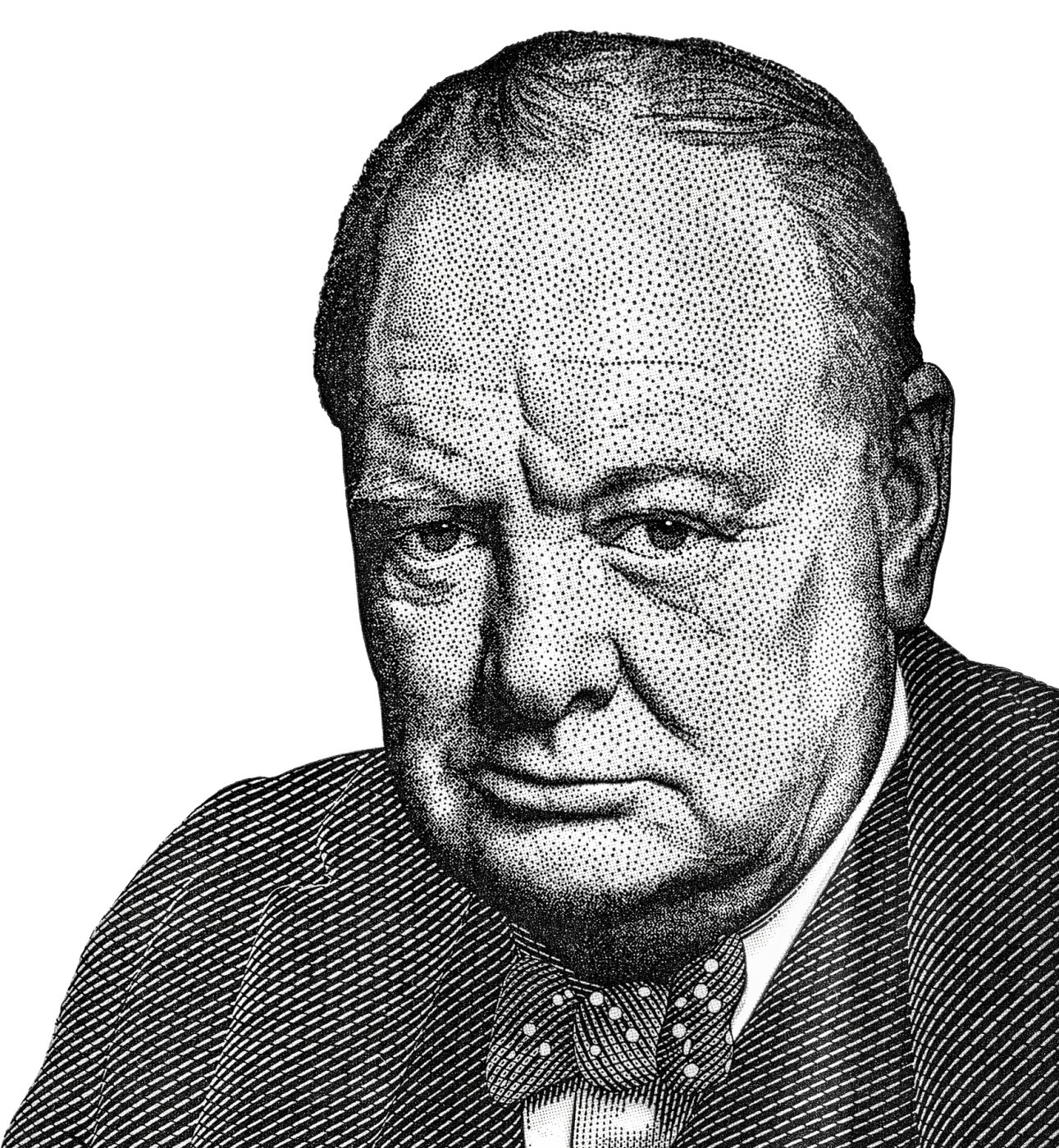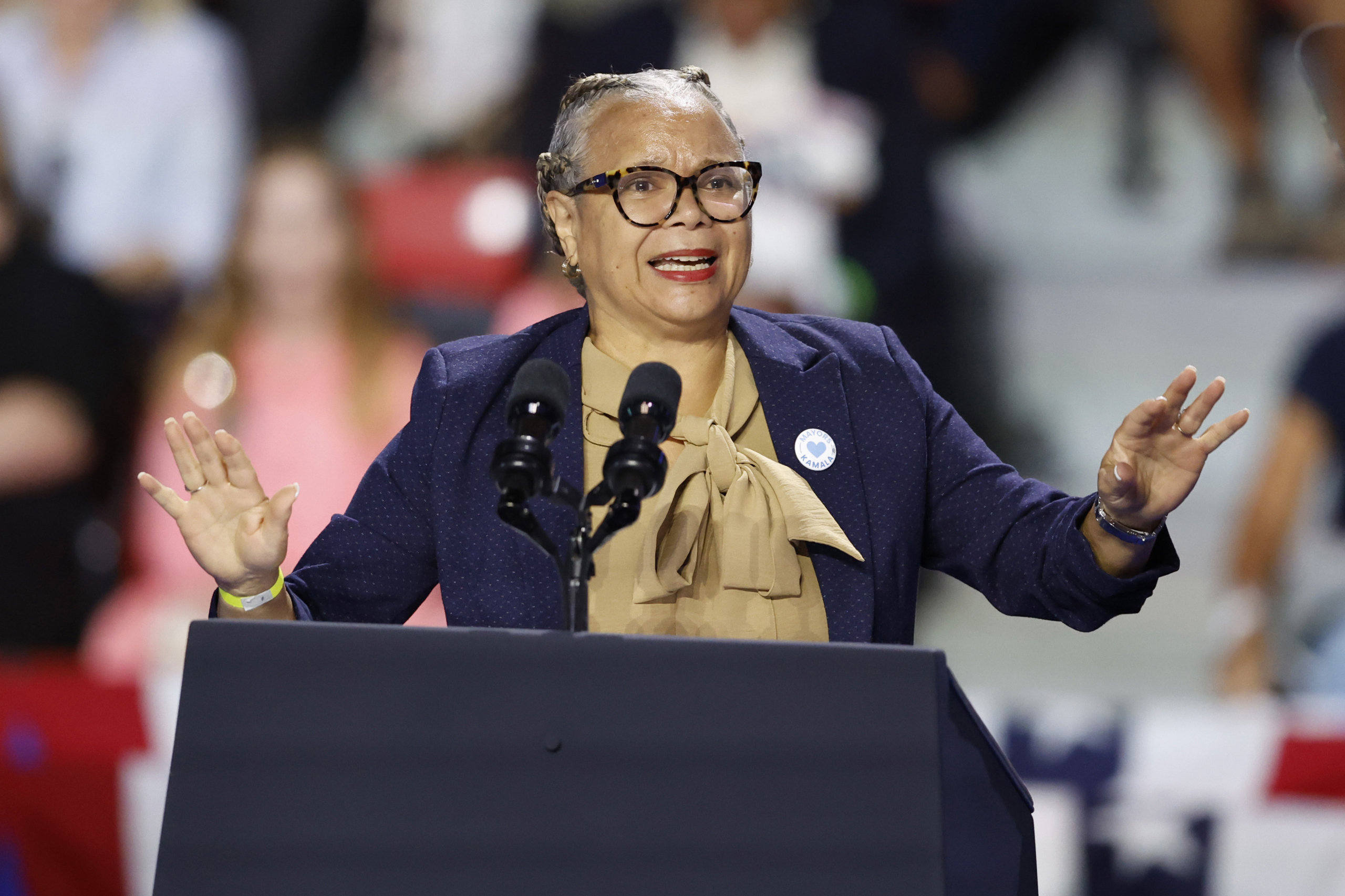Thought of the Day

Education is the key to unlock the golden door of freedom.


Education is the key to unlock the golden door of freedom.

By BOB SUTTON Associated Press
RALEIGH, N.C. (AP) — Nikolaj Ehlers scored 46 seconds into the second period and goalie Frederik Andersen overcame a poor start to stop the final 18 shots he faced as the Carolina Hurricanes beat the Minnesota Wild 4-3 on Thursday night.
Jackson Blake, Andrei Svechnikov and Sean Walker also scored for the Hurricanes, who’ve won three of their last four games. They’ve won back-to-back outings for the first time since Oct. 16 and 18. Blake and Walker also each had an assist and Andersen finished with 20 saves.
Matt Boldy, playing in his 300th NHL game, scored two goals and Brock Faber had one for the Wild, who had won two in a row. Filip Gustavsson, who recorded a shutout last season in Raleigh, made 23 saves.
The teams combined for seven goals on 12 shots through the first minute of the second period. There were three goals in a 52-second stretch in the first period and then each team scored in the first 46 seconds of the second.
Ehlers, who didn’t score in his team’s first 11 games, now has goals in consecutive games.
Carolina captain Jordan Staal set the record for games played as a member of the Hurricanes with 910, pulling ahead of brother Eric Staal. Jordan Staal, 37, is third in Whalers/Hurricanes franchise history behind only Ron Francis (1,186) and Glen Wesley (913).
Staal received a 10-minute instigator penalty for dropping the gloves after teammate Jalen Chatfield took a first-period blow to the head on a hit from Wild center Tyler Pitlick, who was assessed a match penalty. Chatfield didn’t return.
Carolina had defenseman K’Andre Miller back after a six-game injury absence. He had a first-period assist.
Wild: Friday night at the New York Islanders.
Hurricanes: Saturday night at home vs. Buffalo.

By GEOFF MULVIHILL and MICHAEL CASEY Associated Press
A federal judge in Rhode Island ordered the Trump administration Thursday to find the money to fully fund SNAP benefits for November, a decision that the administration promptly appealed.
The ruling by U.S. District Judge John J. McConnell Jr. gave President Donald Trump’s administration until Friday to make the payments through the Supplemental Nutrition Assistance Program, though it’s unlikely the 42 million Americans — about 1 in 8, most of them in poverty — will see the money on the debit cards they use for groceries nearly that quickly.
The order was in response to a challenge from cities and nonprofits complaining that the administration was only offering to cover 65% of the maximum benefit, a decision that would have left some recipients getting nothing for this month.
“The defendants failed to consider the practical consequences associated with this decision to only partially fund SNAP,” McConnell said in a ruling from the bench after a brief hearing. “They knew that there would be a long delay in paying partial SNAP payments and failed to consider the harms individuals who rely on those benefits would suffer.”
McConnell was one of two judges who ruled last week that the administration could not skip November’s benefits entirely because of the federal shutdown.
Shortly after the judges’ rulings, lawyers for the Trump administration filed a motion to appeal, contesting both Thursday’s decision and the earlier one last Saturday that ordered the federal government to use emergency reserves to fund the food program throughout November.
Vice President JD Vance told reporters the ruling was “absurd.”
“What we’d like to do is for the Democrats to open up the government of course, then we can fund SNAP,” Vance said at an unrelated White House event. “But in the midst of a shutdown, we can’t have a federal court telling the president how he has to triage the situation.”
Last month, the administration said that it would halt SNAP payments for November if the government shutdown wasn’t resolved.
A coalition of cities and nonprofits sued in federal court in Rhode Island, and Democratic state officials from across the country did so in Massachusetts.
The judges in both cases ordered the government to use one emergency reserve fund containing more than $4.6 billion to pay for SNAP for November but gave it leeway to tap other money to make the full payments, which cost between $8.5 billion and $9 billion each month.
On Monday, the administration said it would not use additional money, saying it was up to Congress to appropriate the funds for the program and that the other money was needed to shore up other child hunger programs.
McConnell harshly criticized the Trump administration for making that choice.
“Without SNAP funding for the month of November, 16 million children are immediately at risk of going hungry,” he said. “This should never happen in America. In fact, it’s likely that SNAP recipients are hungry as we sit here.”
Tyler Becker, the attorney for the government, unsuccessfully argued that the Trump administration had followed the court’s order in issuing the partial payments. “This all comes down to Congress not having appropriated funds because of the government shutdown,” he said.
Kristin Bateman, a lawyer for the coalition of cities and nonprofit organizations, told the judge the administration had other reasons for not fully funding the benefits.
“What defendants are really trying to do is to leverage people’s hunger to gain partisan political advantage in the shutdown fight,” Bateman told the court.
McConnell said last week’s order required that those payments be made “expeditiously” and “efficiently” — and by Wednesday — or a full payment would be required. “Nothing was done consistent with the court’s order to clear the way to expeditiously resolve it,” McConnell said.
The administration said in a court filing on Monday that it could take weeks or even months for some states to make calculations and system changes to load the debit cards used in the SNAP program. At the time, it said it would fund 50% of the maximum benefits.
The next day, Trump appeared to threaten not to pay the benefits at all unless Democrats in Congress agreed to reopen the government. His press secretary later said that the partial benefits were being paid for November — and that it is future payments that are at risk if the shutdown continues.
And Wednesday night, it recalculated, telling states that there was enough money to pay for 65% of the maximum benefits.
Under a decades-old formula in federal regulations, everyone who received less than the maximum benefit would get a larger percentage reduction. Some families would have received nothing and some single people and two-person households could have gotten as little as $16.
Carmel Scaife, a former day care owner in Milwaukee who hasn’t been able to work since receiving multiple severe injuries in a car accident seven years ago, said she normally receives $130 a month from SNAP. She said that despite bargain hunting, that is not nearly enough for a month’s worth of groceries.
Scaife, 56, said that any cuts to her benefit will mean she will need to further tap her Social Security income for groceries. “That’ll take away from the bills that I pay,” she said. “But that’s the only way I can survive.”
This type of order is usually not subject to an appeal, but the Trump administration has challenged other rulings like it before.
An organization whose lawyers filed the challenge signaled it would continue the battle if needed.
“We shouldn’t have to force the President to care for his citizens,” Democracy Forward President and CEO Skye Perryman said in a statement, “but we will do whatever is necessary to protect people and communities.”
It often takes SNAP benefits a week or more to be loaded onto debit cards once states initiate the process.
___
Associated Press writers Sara Cline in Baton Rouge, Louisiana; Susan Haigh in Hartford, Connecticut; and Gary Robertson in Raleigh, North Carolina, contributed to this report.

By JOSH FUNK and RIO YAMAT Associated Press
Airports in New York, Los Angeles and Chicago are among 40 of the busiest across the U.S. where flights will be cut starting Friday due to the government shutdown, according to a list distributed to the airlines and obtained by The Associated Press.
The Federal Aviation Administration announced Wednesday it would reduce air traffic by 10% across “high-volume” markets to maintain travel safety as air traffic controllers go unpaid and exhibit signs of strain during the shutdown.
The affected airports in more than two dozen states include the busiest ones across the U.S., including Atlanta, Denver, Dallas, Orlando, Miami, and San Francisco. In some of the biggest cities — such as New York, Houston and Chicago — multiple airports will be affected.
The FAA is imposing the flight reductions to relieve pressure on air traffic controllers who are working without pay during the government shutdown and have been increasingly calling off work. The move also comes as the Trump administration is ramping up pressure on Democrats in Congress to end the shutdown.
Controllers already have missed one full paycheck and are scheduled to again receive nothing next week as the shutdown drags on.
The FAA has been delaying flights at times when airports or its other facilities are short on controllers.
Passengers should start to be notified about cancellations Thursday. Airlines said they would try to minimize the impact on customers, some of whom will see weekend travel plans disrupted with little notice.
United Airlines said it would focus the cuts on smaller regional routes that use smaller planes. United, Delta Air Lines and American Airlines said they would offer refunds to passengers who opt not to fly, even if they purchased tickets that aren’t normally refundable.
The head of Frontier Airlines recommended that travelers buy backup tickets with another airline to avoid being stranded.
The cuts could affect as many as 1,800 flights, or upwards of 268,000 passengers, per day, according to an estimate by aviation analytics firm Cirium.
Airlines routinely cut thousands of flights when a major snowstorm moves across the country in the wintertime. Last January, more than 2,000 flights were cancelled on one day as a storm moved across Texas, Louisiana and much of the Gulf coast.
The difference is that these cuts being made during the shutdown will last indefinitely until safety data improves.
“I’m not aware in my 35-year history in the aviation market where we’ve had a situation where we’re taking these kinds of measures,” FAA administrator Bryan Bedford said Wednesday. “We’re in new territory in terms of government shutdowns.”
Air traffic controllers have been working unpaid since the shutdown began Oct. 1. Most work mandatory overtime six days a week, leaving little time for side jobs to help cover bills and other expenses unless they call out.
Mounting staffing pressures are forcing the agency to act, Bedford said.
“We can’t ignore it,” he said.
Bedford and Transportation Secretary Sean Duffy said Wednesday that they would meet with airline executives to figure out how to safely implement the reductions.
Major airlines, aviation unions and the broader travel industry have been urging Congress to end the shutdown, which on Wednesday became the longest on record.
The shutdown is putting unnecessary strain on the system and “forcing difficult operational decisions that disrupt travel and damage confidence in the U.S. air travel experience,” said U.S. Travel Association President and CEO Geoff Freeman in a statement.
Duffy warned earlier this week that there could be chaos in the skies if the shutdown drags on long enough for air traffic controllers to miss their second full paycheck next week.
He said some controllers can get by missing one paycheck, but not two or more.
Staffing can run short both in regional control centers that manage multiple airports and in individual airport towers, but they don’t always lead to flight disruptions. Throughout October, flight delays caused by staffing problems had been largely isolated and temporary.
But the past weekend brought some of the worst staffing issues since the start of the shutdown.
From Friday to Sunday evening, at least 39 air traffic control facilities reported potential staffing limits, according to an Associated Press analysis of operations plans shared through the Air Traffic Control System Command Center system. The figure, which is likely an undercount, is well above the average for weekends before the shutdown.
___
Associated Press journalist Christopher L. Keller contributed from Albuquerque, New Mexico.

By CAROLYN THOMPSON Associated Press
Slime, that gooey, sticky and often-homemade plaything, was enshrined into the National Toy Hall of Fame on Thursday along with perennial bestselling games Battleship and Trivial Pursuit.
Each year, the Hall of Fame recognizes toys that have inspired creative play across generations, culling its finalists from among thousands of nominees sent in online. Voting by the public and a panel of experts decides which playthings will be inducted.
Milton Bradley’s Battleship, a strategy game that challenges players to strike an opponent’s warships, and Trivial Pursuit, which tests players’ knowledge in categories like geography and sports, have each sold more than 100 million copies over several decades, according to the Hall of Fame.
Battleship started as a pencil-and-paper game in the 1930s, but it was Milton Bradley’s 1967 plastic edition with fold-up stations and model ships that became a hit with the public. Its popularity crested when Universal Pictures and Hasbro, which now owns Milton Bradley, released the 2012 movie, “Battleship,” loosely based on the game. Battleship was also among the first board games to be computerized in 1979, according to the Hall of Fame, and now there are numerous, electronic versions.
Trivial Pursuit lets players compete alone or in teams as they maneuver around a board answering trivia questions in exchange for wedges in a game piece. Canadian journalists Chris Haney and Scott Abbott came up with the game in 1979 and eventually sold the rights to Hasbro. Frequently updated, specialty versions have emerged for young players, baby boomers and other segments and an online daily quiz keeps players engaged, chief curator Chris Bensch said.
Slime’s appeal is more about squish than skill.
It was introduced commercially in 1976 and has been manufactured under various brand names, but it is even more accessible as a do-it-yourself project. The internet offers a variety of recipes using ingredients like baking soda, glue and contact lens solution.
“Though slime continues to carry icky connotations to slugs and swamps — all part of the fun for some — the toy offers meaningful play,” curator Michelle Parnett-Dwyer said, adding that it’s also used for stress relief and building motor skills.
The honorees will be on permanent display at the Hall of Fame inside The Strong National Museum of Play in Rochester, New York.
This year’s inductees were voted in over other nominees including the games Catan and Connect Four, the Spirograph drawing device, the “Star Wars” lightsaber, Furby and Tickle Me Elmo. They also beat out classics including scooters, cornhole and snow.

This recipe is cozy, easy, and a great way to use what you have on hand!
1. Make the broth
In a medium pot, heat the sesame oil over medium heat. Add in the garlic and ginger and sauté 1 minute until fragrant. Then, stir in the broth, soy sauce, and chili oil. Bring to a simmer.
2. Cook the noodles and veggies
This step depends on your veggies of choice, but first add mushrooms and carrots to the pot. Simmer for 3–4 minutes until slightly softened. Then, add ramen noodles and cook per package instructions (usually 3 minutes). Add the spinach or bok choy (if using) in the last 30 seconds.
3. Prepare the protein
If using boiled eggs, bring a small pot of water to a boil. Add eggs and cook for 6½ minutes for soft-boiled. Then, transfer to ice water, peel, and slice in half. If using an over-easy egg, cook in some oil in a pan for about 3 minutes on each side over medium-low heat. If you would like to add tofu or another protein, prepare it during this step as well.
4. Assemble
Divide noodles and broth into bowls. Top each with protein, corn, green onions, and any extra toppings.
5. Serve it hot
Sprinkle with toppings of your choice and serve immediately to enjoy this cozy dinner.


“Success is not final, failure is not fatal: it is the courage to continue that counts.” – Winston Churchill

This adorable girl is as sweet as they come — a gentle soul who lives for love, attention, and endless cuddles. She’s quiet and well-mannered most of the time, but she’ll proudly let out a hearty bark to alert you when someone’s at the door. Juno absolutely loves playing with other dogs and zipping around the backyard, her tail wagging a mile a minute.
While she can be a little shy with new people at first, it doesn’t take long for her to warm up — a few gentle pets and she’ll be your new best friend. Whether it’s curling up beside you on the couch or snuggling close at bedtime, Juno just wants to be near her humans. She’d thrive in a home with a yard to explore and maybe a few furry siblings to play with.
Juno is ready to fill your home with love, loyalty, and plenty of cuddles.

Second Chance Pet Adoptions
6003 Chapel Hill Rd., Ste. 133
Raleigh, NC 27607
(919) 851-8404


CHARLOTTE, N.C. (AP) — Voters in North Carolina’s largest city reelected their Democratic mayor, keeping her in place even as safety concerns in Charlotte have risen since the August stabbing death of a young Ukrainian woman on a commuter train.
Vi Lyles won comfortably on Tuesday over Republican and Libertarian challengers in a city that hasn’t elected a GOP mayor since 2007.
“I am just so grateful for the voters — for the people that helped me be here tonight — to be able to say that I have the opportunity to serve the city once more,” Lyles told WBTV on Tuesday evening.
The Aug. 22 killing of 23-year-old Iryna Zarutska on a light-rail car sparked outrage from President Donald Trump and other Republicans about violent crime and pretrial release decisions. It also sharpened campaigning in Charlotte, where Republican candidate Terrie Donovan, a real estate agent, had made crime her top issue even before the stabbing.
Decarlos Brown Jr., the suspect in Zarutska’s stabbing, had previously been arrested more than a dozen times, and he was released earlier this year by a magistrate on a misdemeanor count without any bond. Public anger intensified with the release of security video showing what appeared as a random attack.
The GOP-controlled state legislature passed a law in late September that, in part, tightened pretrial release rules. Lyles, who easily won the Democratic mayoral primary, has highlighted additional safety measures for the light rail system, including a greater presence of transit system officers.
Lyles, a former longtime municipal employee, said Tuesday that city officials need to follow the lead of the Charlotte-Mecklenburg Police Department on what public safety improvements are needed “instead of trying just to say, ‘well, we’ll just throw something out there.’”
City leaders announced just last week the hiring of recent Raleigh police chief Estella Patterson as Charlotte-Mecklenburg’s next chief. Current Chief Johnny Jennings is retiring at year’s end.
Brown is charged with first-degree murder in state court and was indicted on a federal count in connection with Zarutska’s death. Both crimes can be punishable by the death penalty. Brown’s next state court hearing is scheduled for April.
Democrats outnumber Republicans by over 2-1 in voter registration in Charlotte, which has well over 900,000 residents. But the number of registered unaffiliated voters is nearly on par with Democrats.
The mayor and 11 elected officials comprise Charlotte’s city council. With Tuesday’s elections, Democrats will soon hold 10 of the 11 other seats.

By MARK KENNEDY AP Entertainment Writer
NEW YORK (AP) — Ciara, Foreigner, Lil Jon, Kool & the Gang, Busta Rhymes, Mickey Guyton and Teyana Taylor will feature in this year’s Macy’s Thanksgiving Day Parade, which will also cement “KPop Demon Hunters” as a pop culture phenomenon with appearances by the movie’s singers on the ground and cute characters in balloons overhead.
An eclectic group of stars — from ballet dancer Tiler Peck to YouTube’s “Hot Ones” host Sean Evans — will join the annual holiday kick-off, highlighted by Audrey Nuna, EJAE and Rei Ami of HUNTR/X, the fictional girl group at the heart of the Netflix K-pop hit.
The trio are behind the film’s soundtrack, which hit No. 1 on the Billboard 200 and recently went platinum. Two characters from the movie — Derpy Tiger and Sussie — will join the parade lineup as a mid-sized balloon and the adorably named balloonicle.
The parade will begin at 8:30 a.m. on Nov. 27 in all time zones and will feature 32 balloons, three ballonicles, 27 floats, 33 clown groups and 11 marching bands — all leading the way for Santa Claus. The familiar TV hosts — Savannah Guthrie, Hoda Kotb and Al Roker from the “Today” show — will return on NBC and Peacock. More stars will be announced later.
Broadway will be represented by cast members from “Buena Vista Social Club,” “Just in Time” and “Ragtime,” while the Radio City Rockettes will be there and some serious athletes — three-time U.S. national champion figure skater Ilia Malinin and U.S Paralympian Jack Wallace.
Every year, spectators line-up a half-dozen deep along the route to cheer the floats, entertainers and marching bands. Last year, more than 31 million people tuned in on NBC and Peacock, up 10% from the previous year and marking the biggest audience ever for the parade.
This year, four new featured character balloons will debut, including Buzz Lightyear, Pac-Man, Mario from Super Mario Brothers and a 32-foot-tall (9.8-meter) balloon onion carriage featuring eight characters from the world of “Shrek.”
Ahead of next year’s 100th anniversary of the parade, organizers are also including balloons from previous marches, including Rainbow trout, the Happy Hippo Triple Stack, Wigglefoot and Freida the Dachshund.
Six new floats will also debut this year, including from Holland America Line, Lego, Lindt chocolates, “Stranger Things” and a bunch of whimsical sheep trying to get to sleep courtesy of Serta.
Some of the stars on hand will be Jewel, Debbie Gibson, Drew Baldridge, Matteo Bocelli, Colbie Caillat, Gavin DeGraw, Meg Donnelly, Christopher Jackson, Darlene Love, Roman Mejia, Taylor Momsen, Calum Scott, Shaggy, Lauren Spencer Smith and Luísa Sonza.
The marching bands will hail from South Carolina, California, Texas, Arizona, New Hampshire, Mississippi, Alabama, Pennsylvania and Santiago, Panama. The New York Police Department’s marching band will also join.